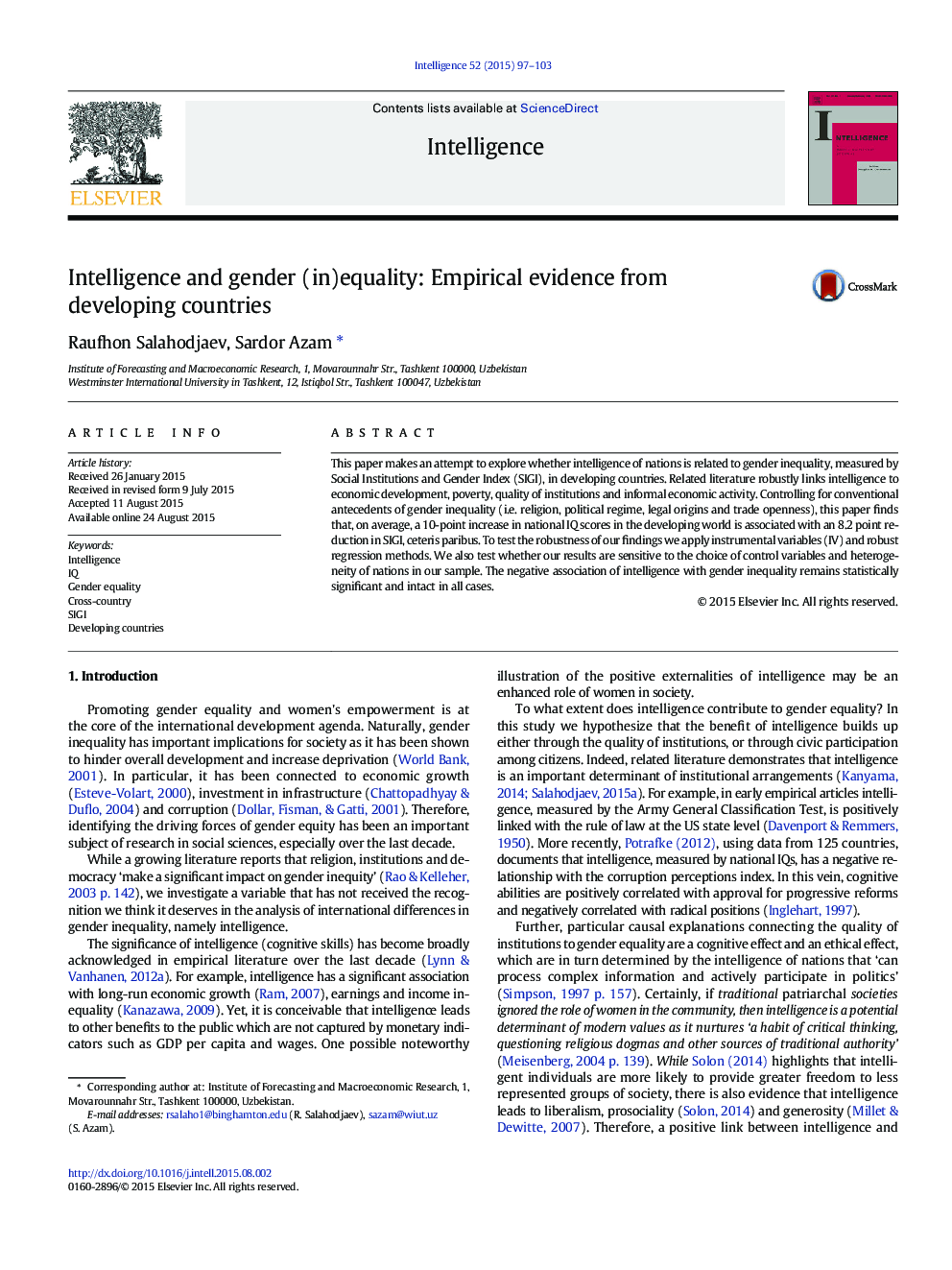| Article ID | Journal | Published Year | Pages | File Type |
|---|---|---|---|---|
| 929020 | Intelligence | 2015 | 7 Pages |
•This study explores the association of intelligence with gender inequality.•After controlling for heterogeneity, intelligence is found to have a negative and statistically significant association with SIGI.•This study controls for the endogeneity by implementing an IV approach.•Multiple robustness tests show that the findings remain intact.
This paper makes an attempt to explore whether intelligence of nations is related to gender inequality, measured by Social Institutions and Gender Index (SIGI), in developing countries. Related literature robustly links intelligence to economic development, poverty, quality of institutions and informal economic activity. Controlling for conventional antecedents of gender inequality (i.e. religion, political regime, legal origins and trade openness), this paper finds that, on average, a 10-point increase in national IQ scores in the developing world is associated with an 8.2 point reduction in SIGI, ceteris paribus. To test the robustness of our findings we apply instrumental variables (IV) and robust regression methods. We also test whether our results are sensitive to the choice of control variables and heterogeneity of nations in our sample. The negative association of intelligence with gender inequality remains statistically significant and intact in all cases.
